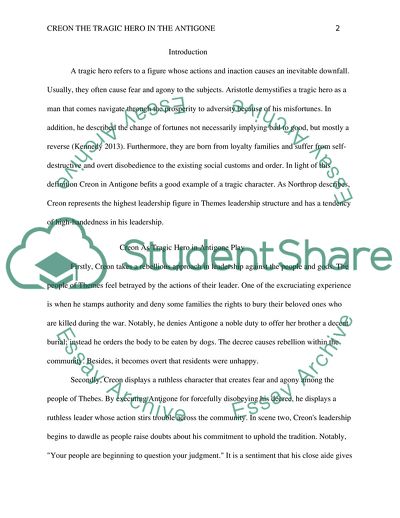Creon the Tragic Hero in the Creon Coursework Example | Topics and Well Written Essays - 1500 words. https://studentshare.org/literature/1842361-ap-literature-and-composition-antigone-essay-on-the-tragic-character
Creon the Tragic Hero in the Creon Coursework Example | Topics and Well Written Essays - 1500 Words. https://studentshare.org/literature/1842361-ap-literature-and-composition-antigone-essay-on-the-tragic-character.


